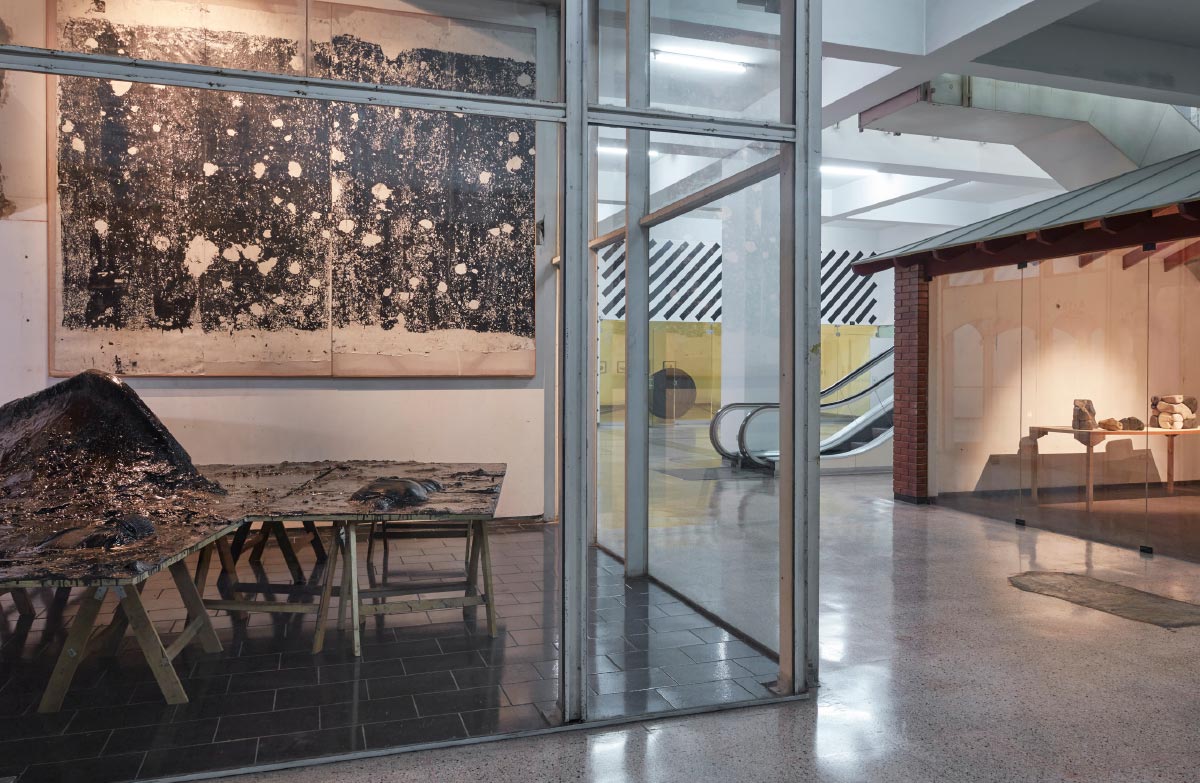(b.1981)
We never were the revolution
2011
Fiberglass, resin, plastic bags on steel sheets and wood
156.5 x 187.01 x 59.06 inches
397.5 x 475 x 150 cm
Fountain # 1
2011
Resin, fiberglass, plastic and stainless steel on wood
31.5 x 47.24 x 70.08 inches
80 x 120 x 178 cm
Fountain # 2
2011
Resin, fiberglass, shovels on stainless steel and wood
31.5 x 47.24 x 61.02 inches
80 x 120 x 155 cm
NN 1985
2008
Oil on canvas
7.76 x 6.89 inches
19.7 x 17.5 cm
In his work Giancarlo Scaglia interprets events that took place in Peru in the 1980 and 90s, during the period of the armed conflict. His interest in the re-contextualization of these events within the field of art has led him to interrogate the origins of aesthetic vanguards, as well questioning what determines an action or gesture to be considered art. Scaglia uses irony to dismantle the figure of the hero or the militant as an individual of unwavering will and commitment. In times marked by the rejection of sacrifice, and in which hedonism is imposed as a new horizon for fulfilment, his work raises an honest question about the possibility of sustaining a life based on duty and collective ideals.

(n. 1981)
Nunca fuimos la revolución
2011
Fibra de vidrio, resina, bolsas plásticas sobre láminas de acero y madera
156.5 x 187.01 x 59.06 pulgadas
397.5 x 475 x 150 cm
Fuente No. 1
2011
Resina, fibra de vidrio, plástico sobre acero inoxidable y madera
31.5 x 47.24 x 70.08 pulgadas
80 x 120 x 178 cm
Fuente No. 2
2011
Resina, fibra de vidrio, plástico sobre acero inoxidable y madera
31.5 x 47.24 x 61.02 pulgadas
80 x 120 x 155 cm
NN 1985
2008
Óleo sobre lienzo
7.76 x 6.89 pulgadas
19.7 x 17.5 cm
En su trabajo Giancarlo Scaglia reinterpreta distintos eventos que tuvieron lugar en el Perú, entre las décadas de los ochentas y noventas, durante el periodo de conflicto armado. Su interés por la re-contextualización de estos hechos dentro del campo del arte lo lleva a cuestionar el origen de las vanguardias estéticas y a preguntarse qué determina si una acción o un gesto es considerado arte. Scaglia hace uso de la ironía para desmantelar la figura del héroe o militante como un individuo de voluntad y compromiso inquebrantables. En tiempos marcados por el rechazo al sacrificio y en los que se imponen orientaciones hedonistas como un nuevo horizonte de realización, su trabajo plantea una honesta interrogante sobre la posibilidad de sostener una vida basada en el deber cumplido y los ideales colectivos.